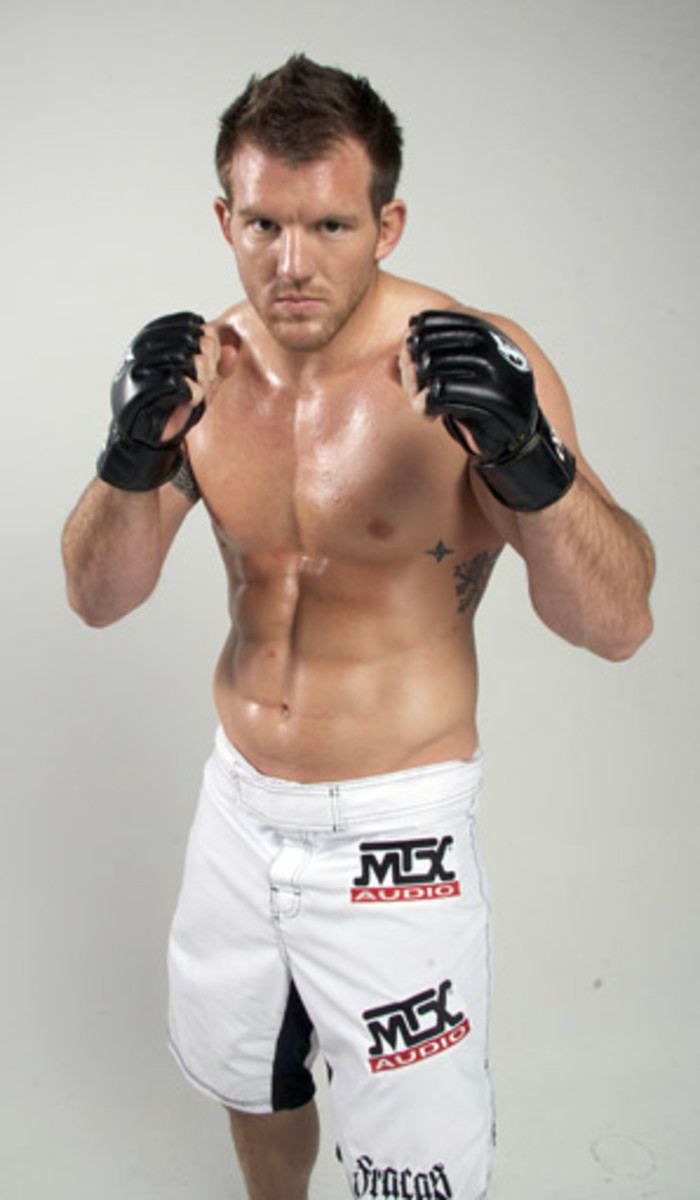
Often criticized, T.U.F. gives fighters golden opportunity
These days, it's easy to be critical of The Ultimate Fighter.
What was once the vehicle that helped elevate mixed martial arts alongside prominent sports in the U.S., the Spike TV reality show has since been ridiculed for becoming just another formulaic reality show.
But, perhaps more concerning to the longevity of the show is that a growing number of its participants have - fairly or not -- been labeled mediocre, as well.
As the Ultimate Fighting Championship and Spike TV try to balance entertainment, promotion and, most importantly, quality talent, results can be less than stellar, as recent seasons have shown. Those of us hoping the next Forrest Griffin will emerge out of the haze of missed armbars and shoddy takedowns have been repeatedly let down.
For the men who agreed to sign on, it's clear their initial goal was to become an established fighter in the UFC -- the undisputed leader among MMA fight promotions today. And as 32 more fighters get ready to take the biggest step of their careers thus far, it's undeniable just how important T.U.F. has become to the athletes.
"I came on the show because my No. 1 goal is to be in the UFC, and this is a great catalyst for that," Ryan Bader, a 24-year-old light heavyweight prospect on Season 8, told SI.com. "The exposure you get off the show -- you can't beat it. And you can show your skills to a wide array of people. Instead of coming up by fighting in smaller shows for four or five years, and then finally making it to the UFC, you're thrown into the mix right away. You have fans -- whether you're the good guy or bad guy -- because people either want to see you succeed or fail, so it's a great place for exposure."
Beyond the marketing advantages T.U.F. delivers to fighters, the intense nature of the show provides unique learning opportunities. Call it "Fight Camp," complete with bunk beds and full-time counselors.
This season, the head counselors include UFC interim heavyweight champion Antonio Rodrigo Nogueira, and former heavyweight titleholder Frank Mir. For a relatively inexperienced competitor, the chance to train with mixed martial artists of this caliber is invaluable, and in many ways, the most important part of their growth as fighters.
"When you have some of the best coaches in the world, some of the best fighters in the world, you get something new everyday," said 30-year-old light heavyweight Krzysztof Soszynski.
The day-to-day training with peers under the tutelage of men that have made it to the top cannot be understated. It has jumpstarted the careers of a number of fighters who might not have otherwise succeeded.
Plus, the show has lasting effect. While The Ultimate Fighter's original concept allowed for just one winner per weight division, guys like Kenny Florian and Josh Koscheck have shown that previous contenders can find as much a chance to succeed in the aftermath of T.U.F. as the champions themselves.
Sam Morgan, a member of Season 2, eventually washed out of the UFC, but his time on the show is something that will follow him well beyond his fighting days.
"It was a good experience because of the people I met and the training I got," Morgan said. "It was a bad experience because when you're up on stage everybody gets to see your flaws -- not so much who you are, but judge you by whatever clips they show."
The label of a "T.U.F. contender" has helped make Morgan more marketable to promoters outside the UFC. Bouts against the likes of Cung Le (Strikeforce's Nov. 2007 event) bring substantially larger paydays than Morgan would have earned had he not appeared on the show.
"It was a good résumé builder," Morgan said. "People know who they're dealing with when they call me up to fight."
In the end, The Ultimate Fighter, like most game shows, is based on results. While talent may vary from cast to cast, the competitiveness displayed from season to season has remained consistently high.
Knowing what's at stake - the UFC contract, of course, stardom, money, perhaps a championship -- fighters sign up with the understanding that they really have nothing to lose. Earning the T.U.F. badge seems to only help a fighter's career. And that's one aspect critics often fail to recognize.





